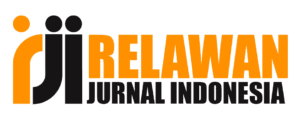The Effect of Social Media on Increasing Interest in Visiting Loang Baloq Tourism in Mataram City
Abstract
The relevance of social media in the tourist industry, which relies heavily on effective communication because its clients are travelers, is gaining more prominence. The tourism industry is information-intensive and heavily dependent on effective communication. This study analyzes social media's effect on increasing interest in visiting Loang Baloq tourism in Mataram city. The research method used in this study is a quantitative method using the smartPLS 3 tool to test the reliability of regression and hypothesis testing. Furthermore, the results of this study show that the theoretical contribution of this research can be briefly summarized as follows: social media tourist attraction significantly influences visiting intentions positively and significantly towards visiting purposes with p values of 0.000 and 0.041, respectively. Social media can support and increase tourist attraction to Loang Baloq Mataram tourism
References
Akhtar, N., Khan, N., Mahroof Khan, M., Ashraf, S., Hashmi, M. S., Khan, M. M., & Hishan, S. S. (2021). Post-covid 19 tourism: Will digital tourism replace mass tourism? Sustainability (Switzerland), 13(10). https://doi.org/10.3390/su13105352
Batat, W. (2021). The role of luxury gastronomy in culinary tourism: An ethnographic study of Michelin-Starred restaurants in France. International Journal of Tourism Research, 23(2), 150–163. https://doi.org/10.1002/jtr.2372
Berhanu, K., & Raj, S. (2020). The trustworthiness of travel and tourism information sources of social media: perspectives of international tourists visiting Ethiopia. In Heliyon (Vol. 6, Issue 3). cell.com. https://doi.org/10.1016/j.heliyon.2020.e03439
Casado-Aranda, L. A., Sánchez-Fernández, J., & Bastidas-Manzano, A. B. (2021). Tourism research after the COVID-19 outbreak: Insights for more sustainable, local and smart cities. In Sustainable Cities and Society (Vol. 73). Elsevier. https://doi.org/10.1016/j.scs.2021.103126
Cham, T. H., Lim, Y. M., Sia, B. C., Cheah, J. H., & Ting, H. (2021). Medical Tourism Destination Image and its Relationship with the Intention to Revisit: A Study of Chinese Medical Tourists in Malaysia. Journal of China Tourism Research, 17(2), 163–191. https://doi.org/10.1080/19388160.2020.1734514
Chen, S. C., & Lin, C. P. (2019). Understanding the effect of social media marketing activities: The mediation of social identification, perceived value, and satisfaction. Technological Forecasting and Social Change, 140, 22–32. https://doi.org/10.1016/j.techfore.2018.11.025
Conti, E., & Heldt Cassel, S. (2020). Liminality in nature-based tourism experiences as mediated through social media. Tourism Geographies, 22(2), 413–432. https://doi.org/10.1080/14616688.2019.1648544
Cuomo, M. T., Tortora, D., Foroudi, P., Giordano, A., Festa, G., & Metallo, G. (2021). Digital transformation and tourist experience co-design: Big social data for planning cultural tourism. Technological Forecasting and Social Change, 162. https://doi.org/10.1016/j.techfore.2020.120345
Dixit, S. K., Lee, K. H., & Loo, P. T. (2019). Consumer behavior in hospitality and tourism. Journal of Global Scholars of Marketing Science: Bridging Asia and the World, 29(2), 151–161. https://doi.org/10.1080/21639159.2019.1577159
El-Said, O., & Aziz, H. (2022). Virtual Tours a Means to an End: An Analysis of Virtual Tours’ Role in Tourism Recovery Post COVID-19. Journal of Travel Research, 61(3), 528–548. https://doi.org/10.1177/0047287521997567
Hamid, R. A., Albahri, A. S., Alwan, J. K., Al-Qaysi, Z. T., Albahri, O. S., Zaidan, A. A., Alnoor, A., Alamoodi, A. H., & Zaidan, B. B. (2021). How smart is e-tourism? A systematic review of smart tourism recommendation system applying data management. Computer Science Review, 39. https://doi.org/10.1016/j.cosrev.2020.100337
Hartanto, Y., Firmansyah, M. A., & Adhrianti, L. (2022). Implementation Digital Marketing Pesona 88 Curup in to Build Image for the Decision of Visit Tourist Attraction. Proceedings of the 4th Social and Humanities Research Symposium (SoRes 2021), 658. https://doi.org/10.2991/assehr.k.220407.121
Hysa, B., Karasek, A., & Zdonek, I. (2021). Social media usage by different generations as a tool for sustainable tourism marketing in society 5.0 idea. Sustainability (Switzerland), 13(3), 1–27. https://doi.org/10.3390/su13031018
Jin, X. (Cathy), Qu, M., & Bao, J. (2019). Impact of crisis events on Chinese outbound tourist flow: A framework for post-events growth. Tourism Management, 74, 334–344. https://doi.org/10.1016/j.tourman.2019.04.011
Joo, Y., Seok, H., & Nam, Y. (2020). The moderating effect of social media use on sustainable rural tourism: A theory of planned behavior model. Sustainability (Switzerland), 12(10). https://doi.org/10.3390/su12104095
Kurniawan, C., Nurmandi, A., & Muallidin, I. (2021). Economic Recovery for Tourism Sector Based on Social Media Data Mining (Vol. 1, Issue January 2020). Springer International Publishing. https://doi.org/10.1007/978-3-030-85540-6
Kurniawan, C., Pratama, I., Purnawingsih, T., Artificial, U. P.-I. J. of, & 2022, U. (2022). Measuring Smart City Implementation to Improve the Quality of Public Services in Jambi City. Ijair.Id, 0(1). https://doi.org/10.29099/ijair.v6i1.405
Kurniawan, C., Purnomo, E. P., Fathani, A. T., & Fadhlurrohman, M. I. (2023). Sustainable tourism development strategy in West Nusa Tenggara province, Indonesia. IOP Conference Series: Earth and Environmental Science, 1129(1), 012022. https://doi.org/10.1088/1755-1315/1129/1/012022
Kurniawan, C., & Suswanta, S. (2022). Implementation of Artificial Intelligence by the Government of West Nusa Tenggara (NTB) in Disaster Management. International Conference on Public Organization (ICONPO 2021), 209(Iconpo 2021), 39–44.
Li, X., Law, R., Xie, G., & Wang, S. (2021). Review of tourism forecasting research with internet data. Tourism Management, 83. https://doi.org/10.1016/j.tourman.2020.104245
Liu, H., Wu, L., & Li, X. (Robert). (2019). Social Media Envy: How Experience Sharing on Social Networking Sites Drives Millennials’ Aspirational Tourism Consumption. Journal of Travel Research, 58(3), 355–369. https://doi.org/10.1177/0047287518761615
Liu, X., Mehraliyev, F., Liu, C., & Schuckert, M. (2020). The roles of social media in tourists’ choices of travel components. Tourist Studies, 20(1), 27–48. https://doi.org/10.1177/1468797619873107
Lu, J., Xiao, X., Xu, Z., Wang, C., Zhang, M., & Zhou, Y. (2022). The potential of virtual tourism in the recovery of tourism industry during the COVID-19 pandemic. Current Issues in Tourism, 25(3), 441–457. https://doi.org/10.1080/13683500.2021.1959526
McCreary, A., Seekamp, E., Davenport, M., & Smith, J. W. (2020). Exploring qualitative applications of social media data for place-based assessments in destination planning. Current Issues in Tourism, 23(1), 82–98. https://doi.org/10.1080/13683500.2019.1571023
Pan, X., Rasouli, S., & Timmermans, H. (2021). Investigating tourist destination choice: Effect of destination image from social network members. Tourism Management, 83. https://doi.org/10.1016/j.tourman.2020.104217
Rather, R. A. (2020). Customer experience and engagement in tourism destinations: the experiential marketing perspective. Journal of Travel and Tourism Marketing, 37(1), 15–32. https://doi.org/10.1080/10548408.2019.1686101
Rather, R. A. (2021). Monitoring the impacts of tourism-based social media, risk perception and fear on tourist’s attitude and revisiting behaviour in the wake of COVID-19 pandemic. Current Issues in Tourism, 24(23), 3275–3283. https://doi.org/10.1080/13683500.2021.1884666
Smith, M. K., Sziva, I. P., & Olt, G. (2019). Overtourism and Resident Resistance in Budapest. Tourism Planning and Development. https://doi.org/10.1080/21568316.2019.1595705
Sultan, M. T., Sharmin, F., Badulescu, A., Stiubea, E., & Xue, K. (2021). Travelers’ responsible environmental behavior towards sustainable coastal tourism: An empirical investigation on social media user-generated content. Sustainability (Switzerland), 13(1), 1–19. https://doi.org/10.3390/su13010056
Toivonen, T., Heikinheimo, V., Fink, C., Hausmann, A., Hiippala, T., Järv, O., Tenkanen, H., & Di Minin, E. (2019). Social media data for conservation science: A methodological overview. In Biological Conservation (Vol. 233, pp. 298–315). Elsevier. https://doi.org/10.1016/j.biocon.2019.01.023
Valeri, M., & Baggio, R. (2021a). Italian tourism intermediaries: a social network analysis exploration. Current Issues in Tourism, 24(9), 1270–1283. https://doi.org/10.1080/13683500.2020.1777950
Valeri, M., & Baggio, R. (2021b). Social network analysis: organizational implications in tourism management. International Journal of Organizational Analysis, 29(2), 342–353. https://doi.org/10.1108/IJOA-12-2019-1971
Wilkins, E. J., Wood, S. A., & Smith, J. W. (2021). Uses and Limitations of Social Media to Inform Visitor Use Management in Parks and Protected Areas: A Systematic Review. Environmental Management, 67(1), 120–132. https://doi.org/10.1007/s00267-020-01373-7
Copyright (c) 2023 Journal of Governance and Local Politics (JGLP)

This work is licensed under a Creative Commons Attribution-NonCommercial-NoDerivatives 4.0 International License.










